PENGUIN

CLASSICS
THE GOSPEL OF WEALTH ESSAYS AND OTHER WRITINGS
Born in Scotland on November 25, 1835, ANDREW CARNEGIE immigrated to the United States with his family as a child and ultimately became the embodiment of the American Dream. The son of an impoverished linen weaver, he took his first job at age thirteen in an Allegheny City cotton mill, then worked as a messenger boy, a telegraph operator, and for the Pennsylvania Railroad, before striking out in business for himself as an iron manufacturer and principal owner of the nations most successful steel mills in Pittsburgh, Pennsylvania. By 1901, when he sold Carnegie Steel to J. P. Morgan, he was arguably the richest man in the world. He spent the last two decades of his life giving away the vast fortune he had acquired, working for world peace, and establishing the Carnegie Corporation of New York, the Carnegie Endowment for International Peace, the Carnegie Foundation for the Advancement of Teaching, the Carnegie Trust for the Universities of Scotland, the Carnegie Hero Funds, and dozens of other philanthropic institutions that remain active to this day.
DAVID NASAW is the author of the nationally bestselling biography The Chief: The Life of William Randolph Hearst, winner of the Bancroft Prize in History, the J. Anthony Lukas Book Prize, the Ambassador Book Award in Biography, and finalist for the National Book Critics Circle Award. He is currently the Arthur M. Schlesinger, Jr., Professor of History at the Center for the Humanities at the City University of New York Graduate Center. His new biography of Andrew Carnegie is published by the Penguin Press. He lives in New York City.
THE GOSPEL OF WEALTH
The problem of our age is the proper administration of wealth, so that the ties of brotherhood may still bind together the rich and poor in harmonious relationship. The conditions of human life have not only been changed, but revolutionized, within the past few hundred years. In former days there was little difference between the dwelling, dress, food and environment of the chief and those of his retainers. The Indians are to-day where civilized man then was. When visiting the Sioux, I was led to the wigwam of the chief. It was just like the others in external appearance, and, even within, the difference was trifling between it and those of the poorest of his braves. The contrast between the palace of the millionaire and the cottage of the laborer with us to-day measures the change which has come with civilization.
This change, however, is not to be deplored, but welcomed as highly beneficial. It is well, nay, essential for the progress of the race, that the houses of some should be homes for all that is highest and best in literature and the arts, and for all the refinements of civilization, rather than that none should be so. Much better this great irregularity than universal squalor. Without wealth there can be no Mcenas. The good old times were not good old times. Neither master nor servant was as well situated then as to-day. A relapse to old conditions would be disastrous to bothnot the least so to him who servesand would sweep away civilization with it. But whether the change be for good or ill, it is upon us, beyond our power to alter, and therefore to be accepted and made the best of. It is a waste of time to criticise the inevitable.
It is easy to see how the change has come. One illustration will serve for almost every phase of the cause. In the manufacture of products we have the whole story. It applies to all combinations of human industry, as stimulated and enlarged by the inventions of this scientific age. Formerly articles were manufactured at the domestic hearth or in small shops which formed part of the household. The master and his apprentices worked side by side, the latter living with the master, and therefore subject to the same conditions. When these apprentices rose to be masters, there was little or no change in their mode of life, and they, in turn, educated in the same routine succeeding apprentices. There was, substantially, social equality, and even political equality, for those engaged in industrial pursuits had then little or no political voice in the State.
But the inevitable result of such a mode of manufacture was crude articles at high prices. To-day the world obtains commodities of excellent quality at prices which even the generation preceding this would have deemed incredible. In the commercial world similar causes have produced similar results, and the race is benefited thereby. The poor enjoy what the rich could not before afford. What were the luxuries have become the necessaries of life. The laborer has now more comforts than the farmer had a few generations ago. The farmer has more luxuries than the landlord had, and is more richly clad and better housed. The landlord has books and pictures rarer, and appointments more artistic, than the King could then obtain.
The price we pay for this salutary change is, no doubt, great. We assemble thousands of operatives in the factory, in the mine, and in the counting-house, of whom the employer can know little or nothing, and to whom the employer is little better than a myth. All intercourse between them is at an end. Rigid Castes are formed, and, as usual, mutual ignorance breeds mutual distrust. Each Caste is without sympathy for the other, and ready to credit anything disparaging in regard to it. Under the law of competition, the employer of thousands is forced into the strictest economies, among which the rates paid to labor figure prominently, and often there is friction between the employer and the employed, between capital and labor, between rich and poor. Human society loses homogeneity.
The price which society pays for the law of competition, like the price it pays for cheap comforts and luxuries, is also great; but the advantages of this law are also greater still, for it is to this law that we owe our wonderful material development, which brings improved conditions in its train. But, whether the law be benign or not, we must say of it, as we say of the change in the conditions of men to which we have referred: It is here; we cannot evade it; no substitutes for it have been found; and while the law may be sometimes hard for the individual, it is best for the race, because it insures the survival of the fittest in every department. We accept and welcome, therefore, as conditions to which we must accommodate ourselves, great inequality of environment, the concentration of business, industrial and commercial, in the hands of a few, and the law of competition between these, as being not only beneficial, but essential for the future progress of the race. Having accepted these, it follows that there must be great scope for the exercise of special ability in the merchant and in the manufacturer who has to conduct affairs upon a great scale. That this talent for organization and management is rare among men is proved by the fact that it invariably secures for its possessor enormous rewards, no matter where or under what laws or conditions. The experienced in affairs always rate the MAN whose services can be obtained as a partner as not only the first consideration, but such as to render the question of his capital scarcely worth considering, for such men soon create capital; while, without the special talent required, capital soon takes wings. Such men become interested in firms or corporations using millions; and estimating only simple interest to be made upon the capital invested, it is inevitable that their income must exceed their expenditures, and that they must accumulate wealth. Nor is there any middle ground which such men can occupy, because the great manufacturing or commercial concern which does not earn at least interest upon its capital soon becomes bankrupt. It must either go forward or fall behind: to stand still is impossible. It is a condition essential for its successful operation that it should be thus far profitable, and even that, in addition to interest on capital, it should make profit. It is a law that men possessed of this peculiar talent for affairs, under the free play of economic forces, must of necessity soon be in receipt of more revenue than can be judiciously expended upon themselves; and this law is as beneficial for the race as the others.


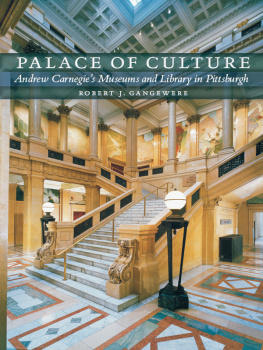
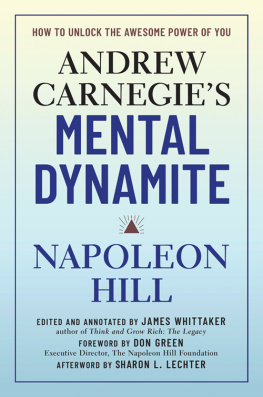
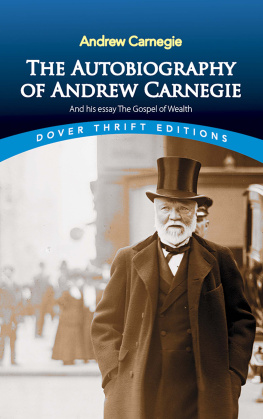

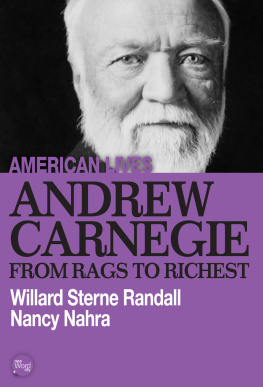
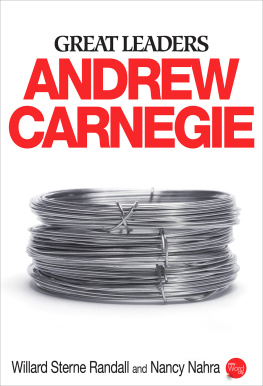
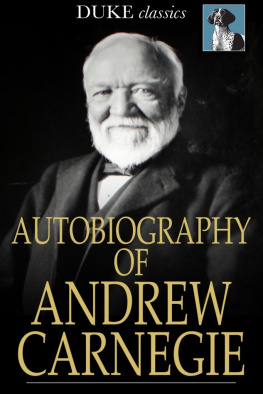
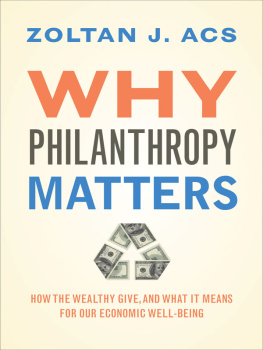
 CLASSICS
CLASSICS